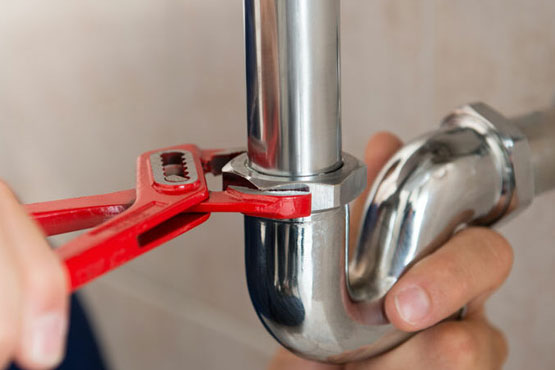How to Prepare Your House for a Possible Plumbing Emergency
Plumbing emergencies do not give any warning, and when they arrive, they usually cause a lot of damage or very expensive repairs. However, being well-prepared may mean all the difference in case one occurs. Here's how you can get your home ready for possible emergency plumbing repair and ensure that you deal with them efficiently.
1. Locate Your Main Water
Shut-Off Valve
Knowing
where your main shut-off valve is located is one of the most important steps in
preparing for a plumbing emergency. It controls the water input into your
house, so turning it off will help prevent further damage in case of a burst
pipe or a serious leak. Every member of your household should know where the
shut-off valve is and how to turn it. Make sure the valve has been checked
regularly to ensure that it remains in good working order.
2. Regular Maintenance
and Inspections
Preventive
measures help to an excellent degree in averting plumbing emergencies. Avail
regular inspections and maintenance with a trusted professional plumber.
Services like plumber drain cleaning can help forestall the clogs and blockages
that might cause emergency situations. Regular checkups can also identify
potential issues before they become serious, reducing the risk of unexpected
emergencies.
3. Keep Emergency Contact
Information Handy
If a
plumbing emergency does occur, you will want to get immediate help. Make sure
that contact details for an emergency
plumbing services are not too far from reach. Save the contact number of
the local plumber you trust who provides 24/7 services on your telephone, on
the fridge, or in a pre-submitted document entitled "Emergency
Contacts." This quick access will let you act fast and appropriately in
case of a plumbing issue.
4. Inspect and Upgrade
Your Plumbing System
Check
regularly for worn-out conditions in the plumbing system of your home. Look for
leaks, corrosion, or other signs that suggest problems in the offing. Be ready
to replace old pipes and fixtures to prevent emergencies that might be causing
old or worn-out parts to fail. With older plumbing in the home, one should
seriously consider replacement with modern, long-lasting materials to reduce
the possibility of an eventual failure.
5. Install Water Leak
Detection Devices
Modern
technology provides solutions where you can be alerted to potential problems
with your plumbing before they become big issues. Water leak detection devices
issue early warnings when a leak or burst is about to happen so that you are
able to act fast. Most leak and flow monitors are connected to your smartphone
and provide updates in real time, thereby sending an alert as soon as there is
a possible problem.
6. Draw up a Plan for
Emergencies
Planning to
mitigate stress and damages when plumbing emergencies arise will greatly help.
A plumbing disaster plan should show ways to turn off the water, whom to
contact in case of emergency services and ways to address more immediate
concerns. Further, educate all the family members on the plan and practice
scenarios regularly to make sure that everyone knows their role in an emergency
situation.
Conclusion
This
involves knowing your plumbing system, maintaining it on a regular basis, and,
most importantly, ensuring you have prepared well. Knowing how to turn off the
water, keeping emergency contact information close at hand, and regularly
scheduling inspections along with plumberdrain cleaning services are some of the best steps you can undertake toward
protecting your home from major damage and reacting quickly in cases of
emergency. Taking these proactive steps will save you a ton of frustrating
angst when you're dealing with plumbing issues. For more information get in
touch with Wilcoxen Plumbing.



Comments
Post a Comment